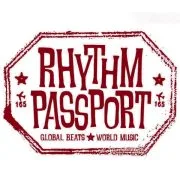Dakh Daughters are a phenomenon.
A pin-drop WOMAD audience gawped as the seven sisters set their freak cabaret in motion. Stony-faced, piercing the crowd with laser-sharp death stares. Doll-like features masked in white paint, black tutus, and ribbons combining gothic horror and balletic grace. Every movement embodying love, death, life, and its meaning. Rumbling undercurrents of cello and double bass, harsh violin squalls, a strident cavalcade of drums, guitar, discordant keys. Powerful voices yelling out in grief and anger.
An overwhelming wave of pain breaking over the motionless crowd, struck dumb with its real-ness. Flashing images of fire, destruction, conflict. Idiosyncratic lyric translations offering surrealist interpretations: “Two soul storks are caught between the chandeliers”.
The audience was confronted with the reality of life under siege, challenged to question their daily striving, and asked, ‘what if it was you?’
The troupe was born from Dakh Theatre, an independent contemporary art centre in Kyiv that also produced the ethno-chaos quartet DakhaBrakha. It aims to “change the cultural situation in Ukraine towards more open forms of art activity and organization, towards a creative dialogue and support of the experimental field of theatre”.
Rhythm Passport spoke with Dakh Daughter Ruslana Khazipova about the troupe’s use of experimental creative expression to explore the deepest aspects of human life.
How has your practice changed as a result of the Russia-Ukraine conflict?
“We were worried this WOMAD performance was too heavy – but we’ve met some very open people here.
With our theatre Dakh, we always work with the question, what is it to be human? How far can we go in our desire for freedom, in love, madness, death?
We always work with the responsible moment. Our art is always really responsible because when we talk with the audience, we have a dialogue. We create an energy transfer from our minds, make it go, go, go.
And we are always powerful in our work.
In 2015, our situation changed with the war. We had to have this war to defend ourselves. And our message now has to be clearer, more framed around freedom, democracy, asking what it is.
Now we sing about our war, but it’s not just about Ukraine; it’s a question about democracy all around the whole world. We defend freedom and democracy for the world. Not only talking about this regime but freedom for everybody.
We ask people, what is freedom, do you think? It’s a big question.
We do not feel ourselves, the Ukrainian people, that we want to be heroes. It’s horrible that we have this war in 2023 when we could have Womad.
We just want people to open their hearts and minds. Because my feeling is that nothing, nowhere, will ever be better. The dream world is coming, yes, but NOW we are members of this time. And that’s why we want change, we want to help people, we want to connect to you. We want the world to evolve into something beautiful.
It’s very hard. People might not agree with us. But we still fight for them.
We want people to open their eyes wider, and to go on like that, wider than they were. But it will take love”.
Your performance is full of fire and power – but dark and heavy at the same time. How do you want people to respond?
“We always say, don’t expect too much. Just try and open your heart, and we will meet you, heart to heart. So we just see what happens and how people react.
We’re not trying to provoke them. We don’t know what pressure will be on people tomorrow or today. The main idea is to be here and now, creating the energy with people. It’s the one time that people make something just together. It creates the energy of transformation. It’s very big work, but it’s really worth it”.
Did you feel that energy transfer in the audience today?
“Yes. We feel it. We feel that it’s heavy for them. We don’t know if we have the right to make the audience feel like this. We’re just grateful that they’re willing to share.
It’s just our example, but then that energy can go on transforming and make their own revolution and evolution”.
How do you make use of the Ukrainian singing tradition in your performance?
“Vladyslav Troitskyi is the director of Theatre Dakh. He brought together DakhaBrakha and Dakh Daughters. He can create worlds, and these worlds, people can follow. About five years ago, he was in love with Ukrainian culture, with Ukrainian folk, with polyphonic voices. He felt so much power from that.
It’s a very physical art form. It creates that energy, and then the transformation happens in you. So we feel we want to work with these voices and songs.
In Ukraine, we have very suffering histories. With the singing you feel it coming through you. It fuels you and it makes this fire“.
What do you want people to take away from your show?
“First, our message is: now, what’s happening in Ukraine, how can you do this, with good sense?
We propose thousands of things. We try to put light and shade over it. We all have different problems, but somehow, I don’t know, look inside of yourself. Not only being with Ukraine, but maybe the possibility to look in yourself. Think what you can, how you can go on, what you can bring to this big world.
To change, to connect, to continue on music, business, I don’t know. It doesn’t matter.
But be unique, unique, unique.
And arm Ukraine now!”
Photo ©: Ursula Billington


